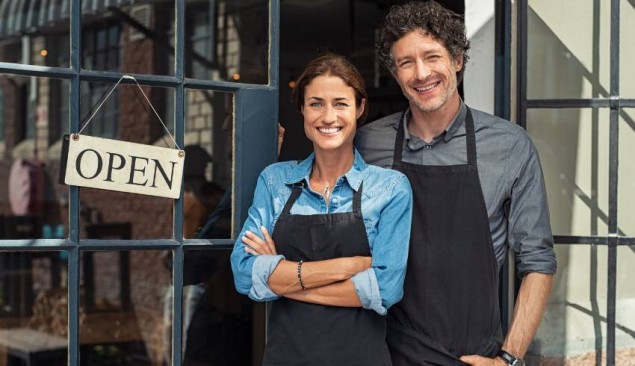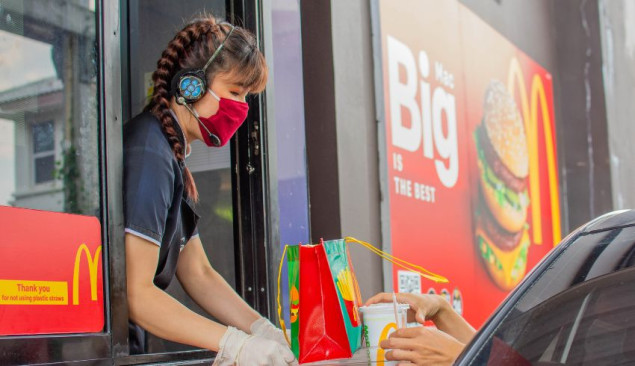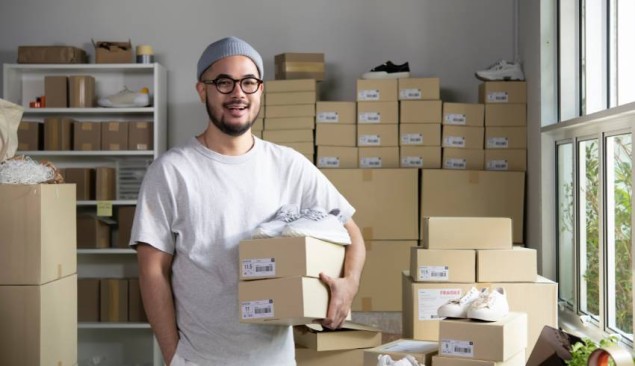Best UK Franchises in 2025

Jump to
Best franchises for December
YouMeSushi
Nurse Next Door Franchise
Concept Claim Solutions
Local Shops
Low cost franchise opportunities
Fun Fest for Children
SmartPA
Top new franchises
Popular franchises
Kaspa’s Desserts
Betterclean Services Franchising
Largest number of outlets
Snap Fitness
World Options
Anytime Fitness Franchise
A beginners guide to franchises
Are you considering investing in your own business? Becoming a franchisee is one way to gain business ownership.
You (the franchisee) will pay a franchise to use their recognised brand, support system, and tried and tested business model. This can be helpful in ensuring your business is successful early on.
The business will be yours and you will control operations and its revenue. However, you will need to operate your business within the brand framework set out by the franchisor.
The business model is popular because it avoids the challenges that come with creating a brand from scratch.
Franchising contributes £19.1 billion to the UK economy, which equates to £400,000 turnover per unit, according the British Franchise Association’s National Survey 2024.

Benefits of buying a franchise
Investing in a franchise business can provide advantages such as:
- A proven business model: A franchisor will be able to produce evidence that their brand is a profitable franchise in the UK. Before investing speak to other franchisees to understand how they’ve made the business model work for them and how much they earn.
- A support system: Receive mentoring via franchise support managers or regional support managers.
- Training: Attend training prior to opening your business. This will often entail shadowing a current franchisee. You’ll also likely receive refresher training to support your staff and prepare you for any operational changes.
- Brand awareness: The franchisor has spent a lot of resources on creating an established brand. This brand recognition will likely help you bring customers through the door from day one of your business launch.
- Funding: Many businesses have bank partnerships which increase the likelihood of gaining access to a business loan. Some brands also offer in-house loans and finance opportunities.

What is a franchise? Who is in control?
Franchisees follow the brand’s business model and practices. Yet have a similar level of control as an independent business owner.
Franchisees are responsible for the time that they spend on building and scaling their business.
If your business is failing, it’s ultimately on you to put in the hours and implement a strategy to save it. The franchisor should help you with this as your fees cover the support.
Franchisees need to be ready to lead a team when they join a franchise network. This is especially important if they are considering a management role.
READ: Business & Professional Services Franchises For Sale
Franchisees have various responsibilities. They run the business, communicate with customers, handle finances, attract new clients, advertise locally, complete office tasks, and more. Of course, the roles and responsibilities will differ depending on the type of business you are running.
You will be responsible for hiring staff, so it’s important you’re aware of employment laws. To hire employees, you must first register as an employer. You also need to follow minimum wage laws and create a contract. You must also verify that candidates have a right to work in the UK.
Franchisees also need to deal with staff dismissals. So it is crucial to understand employee rights, redundancy pay, disciplinary procedures, and other factors involved in ending contracts. (Larger brands tend to have in-house legal departments that can help you with this).

How do you buy a franchise?
Find franchise opportunities in the UK by using the What Franchise directory. Attend discovery days and check LinkedIn for direct information from franchises. Also, visit trade shows hosted by the British Franchise Association and the International Franchise Association to explore further options.
You will need to research the market well. Consider if franchise brands match your budget, location, experience, and if the company is in a sector you like.
(Brands in the franchise industry are diverse, and investments can range from under £10,000 all the way up to £1 million and beyond.)
When you reach out to a franchise, they will provide you with a document containing financial and business information. This document is called a Franchise Disclosure Document (FDD).
While communicating with a franchisor is extremely worthwhile, it’s imperative that you check sources and corroborate claims.
Some investors prefer brands that are part of the self-regulated body, the British Franchise Association, for added reassurance. Being a member means the brand has paid to subscribe to ethical and sustainability principles throughout its operations.

What is a franchise agreement?
A Franchise Agreement is a legal document signed by both the franchisee and franchisor. It must be fair and cover all important aspects.
“A good franchise agreement will ensure that the obligations and rights of both parties - i.e. franchisor and franchisee - are set out as required and the final contract is likely to run to 40 or more pages,” says the BFA.
Before signing a franchise agreement, make sure to check how long it lasts and if you can renew it when it ends.
Ensure that you have exclusive rights in your area for the entire term. Understand any restrictions or conditions for selling your business.
Review legal papers with a franchise lawyer to catch any issues. They can give you professional advice and help you understand problems.

Different types of franchises
So many brands operate franchise models, meaning there’s a wide variety of businesses to choose from.
Franchisees need to think about:
- Do you want to work part-time or full-time?
- Would you like to operate in a van-based, office, retail, or working from home environment?
- Are you looking to take on a management role, or providing services?
- Would you like to scale your business or operate in a single territory?
(The What Franchise directory allows you to filter businesses by these traits.)
Franchise resales
A resale is when you buy an existing business from a franchisee. This gives you the rights to operate in that specific area. This can involve the sale of a company or a sale of the assets of the franchisee’s business.
Franchise agreements usually clearly state rules on resales, allowing franchisees to sell their business.
The current owner will decide the price and terms of the resale. These details must then be approved by the franchisor.
Buying a resale is usually pricier than starting in a new territory, as it comes with customers and income.
Low-cost franchises
The franchise model is extremely appealing as there are business and investment opportunities catered to all budgets and lifestyles.
A low-cost franchise typically costs less than £5,000, but some may range from £5,000 to £10,000.
Franchises in this price range include cleaning, children’s activities, and vending. They often offer benefits such as working from home and operating the business part-time.
Low-cost, however, does not necessarily mean low growth, with the business-in-a-box model allowing you to grow sales.

Choosing a franchise
Deciding on a franchise brand requires careful consideration and commitment. Here, we list the essential advice and information you need to seek out before embarking on your journey.
Comparing franchise opportunities
Buying a business involves researching and collecting information from the start until you become the owner.
Firstly, investigate which sector or brand is best suited to your experience, skillset, budget and lifestyle arrangements.
Then, send an array of enquiries using the What Franchise submission entry to learn further details. You need to look out for:
Investment fee
The main investment fee is the franchisee fee, which is what you pay when joining a franchise.
The fee covers the right to use the franchisor’s brand, name, logo, products, business model, and services for your business.
John Pratt, senior partner at Hamilton Pratt, states the initial franchise fee is to reimburse the franchisor of the costs it will have incurred when recruiting and training the franchisee.
“The initial fee should generally not contain a profit element for the franchisor because otherwise there is a risk that the franchisor’s business is the sale of franchises, rather than doing everything necessary to ensure that franchisees are successful,” he says.
Other Fees
- Royalty fee: The royalty fee is a payment that franchisees make continuously during the franchise agreement. This payment allows them to use the franchisor’s systems and trademark.
- Advertising fee: An advertising fee is taken monthly as a percentage of your sales. The value differs but typically ranges from 1% to 4%.
- Franchise renewal fee: Extending the agreement sometimes means incurring a fee. The franchisor will outline this when you sign your franchise agreement.
- Franchise resale fee: You might have to pay a fee to the franchisor if you choose to sell your business.
- Insurance: Approved insurance should be in your franchise agreement. If it’s not, then it’s best to consult your franchisor about their preferred company before gathering quotes.
Choosing a franchise can be one of the toughest decisions in your life and the decision-making process can’t be entered into half-heartedly. Here, we list the essential advice and information you need to seek out before embarking on your journey.

How to fund a franchise in the UK
The average set-up costs for a franchise range from £50,000 to £60,000, although in reality it can start from £500 and can cost in the millions, according to the BFA. Here are the options available to budding franchisees looking for funding:
Average set-up costs range from £50,000 to £60,000, according to the BFA. However, some of the largest franchise brands in the country may cost more than this.
Here are the options available to budding franchisees looking for funding:
Asset financing: Some brokers will finance the equipment you need to start the business. You can then repay the money once you begin earning revenue.
In-house payment plans: Many brands offer staggered payment plans and in-house loans to encourage talent into the network.

How the application process works
Here’s generally what the investment process entails:
1. The prospective franchisee makes an enquiry, either via a directory website or to the franchisor directly
2. The franchisor will send prospect information or a brochure covering the business or a Franchise Disclosure Document
3. The franchisor will make a follow-up cal. The prospect can ask questions they may have about the business and the franchisor can initially vet the them.
4. Prospect is invited to meeting with the franchisor or allocated a place on a discovery day
5. Prospect completes further due diligence of the franchise, including conducting researching and communicating with and shadowing with current franchisees
6. A second meeting takes place and the business proposition is discussed in more detail, including financial information
7. The prospect will consult with financial and legal experts regarding the franchise agreement and forecasts provided by the franchisor. Complete the business plan , secure bank funding, and lease a location.
8. The prospect and franchisor sign the franchise agreement.
9. Initial training begins

What’s the quickest way to buy a franchise?
Multi-unit franchising, where a franchisee owns and operates more than one outlet, is growing in popularity.
Benefits
-
Franchising is about expansion: Use your experience to make each location opening easier than the last.
Economies of scale: Purchase supplies in bulk and spread marketing costs.
Staff flexibility: Run units within proximity of one another so you can oversee a large workforce.
Risks
-
Extra work: With extra businesses comes extra work and further fund sourcing. This can create pressure.
Reduced profits: Your profitable franchise business may have to initially bolster other locations while you set them up.
Many franchisors perfect their systems over years to ensure they maintain the brand’s integrity. Therefore, it is critical that they don’t allow the wrong person to invest and tarnish its reputation.
Be wary and conduct more research if a franchisor is pressuring you to invest quickly. Consider talking to the British Franchise Association.

Opportunities to open a franchise in the UK
A wide range of professionals help you explore your options. Here are just a few:
Franchise recruiters
Brands employ Recruitment Managers to answer any questions you have after making your initial enquiry. They will usually sound you out and offer honest feedback on whether you will be a good fit for the brand and visa-versa.
Franchise broker
A broker will help franchisees choose the best viable opportunities for them based from their portfolio of franchisors.
A broker will not charge the would-be franchisee. They charge franchisors a commission each time someone buys a franchise. A broker will typically charge from 40% to 50% of the fee paid by the franchisee.
Franchise directories
Online franchise directories, like what-franchise.com, offer entrepreneurs the opportunity to browse hundreds of business opportunities in the UK.
Directories aim to give you an overview of the investment opportunity, including financial information, risks, and benefits. It is a good way to compare brands before you start a franchise business.

What’s the difference between franchisee and franchisor?
Franchisors is usually the original business owner and founder. They often still own and operate locations.
However, they sell their brand concept and business model to other business owners, called franchisees. These franchisees can operate their business using the same products, services, and brand.
Franchisors often opt for franchising as a way to expand their business without personally investing.
Franchisees are sometimes wrongly called franchise owners. They are business owners, and ownership of the concept belongs to the franchisor.
“There is only one ‘franchise owner’, and that is the franchisor, i.e. the business that developed the concept that’s the subject of the franchise and which owns the rights associated with that concept,” explains Brian Duckett, chairman of The Franchising Centre.
“The business to which those rights are granted in order to operate clones of the proven concept and system are franchisees. They may be international master franchisees, regional franchisees, area development franchisees, unit franchisees or multi-unit franchisees, but they are all franchisees.”
What’s the best franchise?
The best franchise opportunity for you will depend on what you’re trying to achieve. However, broadly speaking it should be a brand that provides support to franchisees, has a track record of franchisees supporting successful business across the UK
Current UK franchise opportunities available include:
- Arts and crafts franchises
- Bar franchises
- Beauty treatment franchises
- Business franchises
- Car and mechanics franchises
- Care franchises
- Children’s franchises
- Cleaning franchises
- Clothing franchises
- Coffee franchises
- Industrial franchises
- Communications franchises
- Delivery franchises
- Education franchises
- Estate agency franchises
- Financial services franchises
- Food and drink franchises
- Gym franchises
- Property Maintenance franchises
- Hotel franchises
- IT franchises
- Law franchises
- Mobile phone franchises
- Pest control franchises
- Pet franchises
- Pizza franchises
- Plumbing franchises
- Print franchises
- Recruitment franchises
- Travel franchises
- Vending franchises
What Franchise Newsletter
Keep up to date with all the industry news




_110_108.jpg)








_110_110.jpg)










